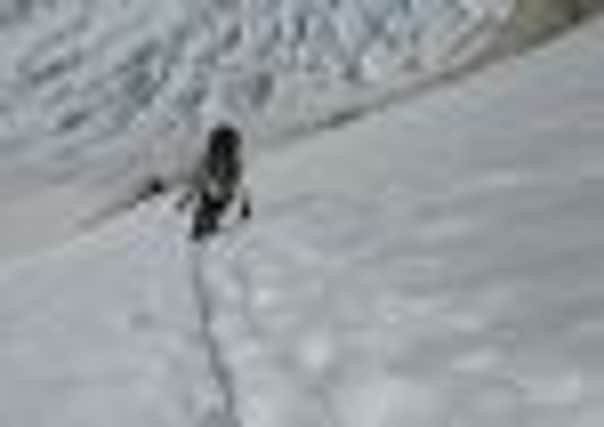Adventurer Mark Beaumont on his abortive Patagonian expedition


“We could regularly hear avalanches and rockfall around us,” he explained on his blog, “and we also found some very exposed sections during the climb, where if you slipped, you wouldn’t survive. I made the decision that the risk was too high.”
To say Beaumont had “bottled it” is, of course, ridiculously unfair – San Valentin is notoriously hazardous and has only been climbed a handful of times. And to say the 30-year-old bottled it “again” isn’t really accurate either. His previous adventure – an attempt last summer to break the 30-day record for rowing across the Atlantic – didn’t fail because he decided to turn back, but because the boat he was in, the Sara G, was capsized by a large wave.
Advertisement
Hide AdAdvertisement
Hide AdStill, the point is this: the general public – and also the media – can be very harsh indeed when it comes to judging the successes and failures of adventurers.
It was ever thus. When Sir Ernest Shackleton landed in the Falkland Islands in 1916, on the way back to Britain after masterminding his near-miraculous escape from Elephant Island, one of the locals reportedly belittled his achievement with the words: “‘E ought ter ’ave been at the war long ago instead of messing about on icebergs”. There is now some debate about whether that quote is genuine or whether it was invented by a contemporary journalist seeking to put his own spin on events. Either way, though, it’s a sentiment that has been echoed on numerous occasions in the intervening 100 years.
Last month, when Sir Ranulph Fiennes announced that frostbitten fingers had forced him to cancel his attempt to be the first to cross Antarctica on foot during a southern winter, some of the comments on newspaper websites were less than charitable. One simply said “So what?” Another wondered “How many hundreds of thousands is his rescue going to cost? And how many other peoples [sic] lives will he put at risk? Past achievements apart, he’s now becoming a silly old fool.”
Adventurers, I suppose, are the ultimate tall poppies – lauded to the skies when they succeed, because when they win, they win big, but all too easily cut down to size when they fail, because, er, sorry – what was the point of trying to climb that mountain again, exactly?
It’s clear from reading the statement on Beaumont’s website that he was aware of these pressures while in Patagonia – the summit of San Valentin, he says, “would have been great, it would have been the headline”. But his awareness that his actions would be judged in the court of public opinion when he got home only makes it all the more impressive that he had the good sense to turn back. He decided that failure was a price worth paying in order to stay alive – that seems like a pretty good deal to me.
A hundred years ago, adventurers were more-or-less expected to achieve their objectives or die trying. The legend of Robert Falcon Scott’s “ultimate sacrifice” was used to inspire British troops on the Western Front during the First World War, and I wonder if some vestiges of this “death or glory” mentality still linger on today – if not in our top adventurers, then in the superhuman expectations we sometimes seem to have of them. But it also seems that we have evolved a little since then. For me, the most telling part of Beaumont’s announcement that his Patagonia adventure was at an end was the opening:
“I have made the decision to turn back. Never an easy decision when you start to think about the money and time invested to go on expedition. But ultimately a very easy decision when you focus on what is really important. Safety and enjoyment.”
Scott would never have said that, but then Scott ended up dead. Much as I admire him, I can’t help thinking Beaumont sets a far healthier example.